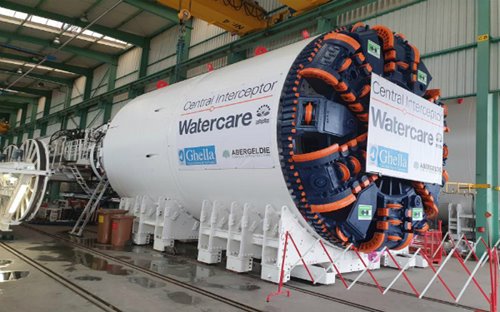
A lot of insurance is tied to contracts, so it’s critical you understand what’s in your contract and comply with the requirements in there. Even if you use a standard contract, things might change and you need to be on top of this, or you might end up in hot water.
Guarantees & Bonds
Contracts from the building trade associations typically include a reference to that association’s 10 year guarantee. A third party guarantee like that, including Builtin’s independent one, gives homeowners an additional layer of protection if there is a problem and their builder is unable or unwilling to resolve it (usually because they have gone bust). Don’t confuse a requirement for one of these with your implied warranties under the Building Act that you must guarantee your own work anyway. The guarantees described above are separate policies from a third party that “back up” your own warranty if you are not around to meet it yourself. They are also not insurance to cover your own mistakes, you are still responsible and these guarantees will only step in once you aren’t able to meet your obligations yourself.
If your contract says you will provide one then that becomes a legal obligation on you. There have been numerous stories in the media over the years (and plenty more that don’t make it to the news) where a homeowner was promised a 10 year guarantee but their builder never applied for it.
These guarantees come in two parts:
- the guarantee of completion and
- the defects cover.
You must make sure that if your client’s require completion cover then the guarantee you provide includes this, otherwise you may be in breach of contract. This is generally the most important part as it guarantees that their job will be completed at the price agreed. It is the completion cover that banks are generally interested in when they require these guarantees as a condition of lending.
If it’s a commercial contract then it may include a requirement to provide a performance bond. These are common in large contracts but increasingly demanded for medium sized jobs too. Banks, insurance companies and specialist bond sureties can provide these, often the insurance and surety backed ones work out more cost effective than having all that capital tied up at your bank.
If your contract requires retentions, it may also allow you to provide a bond instead, called a “bond in lieu of retentions”. This can be a safer way to meet your defects liability obligations, as you have no outstanding cash sitting with your principal as the bond simply expires once the defects period ends.
When arranging a bond it is important it meets the conditions of the contract. Most contracts will include the specific form of the bond wording required, and the insurer or bond surety will usually defer to this.
Contracts may also reference a “principal’s bond”. If the contractor wants to guarantee that they will be paid for work done they can demand the principal provide a bond to this effect.
Builders, Apply For Accreditation Today

Contract Works Insurance
Who arranges the contract works insurance (also sometimes called builders risk) is usually specified in the contract. If it says the builder is responsible for it then it is up to you to arrange it. Standard practice is that builders will be required to arrange contract works cover when the job is a full contract new build. For jobs like alterations and renovations, which involve work to an existing structure (where there is already an insurer for that building), the building owner is usually responsible, in the contract, for arranging this insurance. The same goes if the job is labour only.
If the owner is responsible, we strongly recommend that you see a copy of the policy before you start work (to make sure it has been correctly arranged). It could cause you an issue if they haven’t arranged it, even though it was not your responsibility, as you are a joint insured under the policy. Without one in place you could be held liable for any damage you are responsible for. This includes ensuring there is cover for damage to the existing structure caused by the performance of the building work.
Another important consideration is the “additional items” that are often specified. These include allowances for things like professional fees, demolition & removal of debris and escalation in costs. If the contract specifies amounts for these then you must make sure the contract works insurance matches them.
Contract Works Insurance

Public liability insurance
Make sure if the contract says you will hold $5m cover (or any other amount) that you have that amount. Policy limits can be increased for specific contracts if required.
Note that public liability policies automatically cover your principal for their “vicarious liability”. This means liability they have for your actions (eg. if a neighbour held them responsible for damage to their property resulting from your building activity). If a principal (or their lawyer) asks for their name to be added to your public liability policy that usually means they don’t understand how liability insurance works. Insurer’s generally won’t add principals to contractors’ public liability policies because they already include that vicarious liability clause.
Liability Insurance

Professional indemnity insurance
Contracts may also require the contractor to hold professional indemnity insurance. This is common if the job involves an element of design on the part of the contractor, such as with “design & build”. There are also many situations where the builder is required to engage the services of other professionals as subcontractors (like surveyors or engineers), where there is a professional indemnity exposure to the contractor if that professional stuffs up.
If the contract requires you to have this take note of the conditions and ensure these are met by your professional indemnity insurance. Professional indemnity policies are of a type called “claims made”. This means that as well as having the cover when you did the job the policy has to be in place continuously up until the time the claim is made against you, which could be many years after the project is completed. The contract will probably require you to hold it for a minimum period after completion of the project. Some contracts refer to 6 years, but we would recommend at least 10 years from when a CCC is achieved.
Design & Construct Professional Indemnity Insurance

Contractors plant
These conditions typically refer to “critical pieces” or items over a specific value. It is designed to ensure that a project isn’t delayed because an important piece of equipment is damaged and not insured (and the contractor can’t afford to replace it) and this substantially delays the project. It doesn’t mean you need to have tools insurance for your small items (although you should!).

Motor vehicle third party liability
This is required in contracts because if a vehicle causes damage to the works (or nearby property) it is the vehicle’s insurance policy that needs to pay (licensed, registered vehicles aren’t covered by public liability insurance). The contractor must make sure all vehicles they are responsible for (including workers and subbies) are insured. Limits are often specified and most commercial vehicle policies will have at least $2m and commonly $10m, but you need to make sure yours meets the contract requirements.
As a side note, in general terms if a piece of equipment that is road registered is being used for its specialised purpose (eg. a crane or pump truck) then damage it does at that time would be covered by public liability insurance. If it is being driven then it would be covered by the vehicle third party insurance.
In a nutshell
If you’ve got through this article then you can get through a contract! It might seem like a drag and a waste of time and be hard to decipher (I’m talking about contracts, hopefully not this article) but it is absolutely critical if something goes wrong that you have properly complied with the contract terms. A good insurance broker will assist you to meet your insurance (and guarantee and bond) obligations within your contract and can complete any contract schedules necessary or supply certificates.



